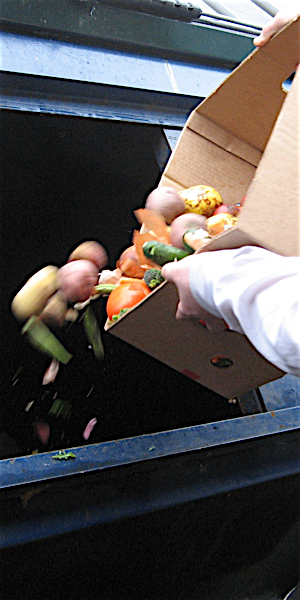We can help you take the next step!
The Center for EcoTechnology (CET) is working to share information and lend experience to build capacity for diverting wasted food in Pennsylvania. This work is focused in the greater Philadelphia area, where CET has partnered with the City, Philabundance and others as the City implements its Zero Waste Plan. CET produced Wasted Food Solutions: Spotlights from Philadelphia to highlight a few inspiring examples of commercial entities and institutions preventing and recovering food waste in the city. To learn more about CET’s work in Philadelphia and to get involved, contact CET today at 888-813-8552 or e-mail wastedfood@cetonline.org.
Helpful Pennsylvania Wasted Food Resources
- Philadelphia’s Zero Waste and Litter Cabinet’s Action Plan
- Philadelphia’s Zero Waste and Litter Cabinet created a plan to achieve a zero-waste and litter-free Philadelphia by 2035. The plan also includes the next steps for wasted food diversion.
- Philadelphia Zero Waste Partnership Program
- The Zero Waste Partnership Program is a new way for the City to collaborate with local businesses and organizations. Partners take the extra step to report on their Zero Waste practices, including several Zero Waste Action Items and monthly waste diversion rates. Partners also earn special incentives for implementing Zero Waste practices, such as eligibility for the Sustainable Business Tax Credit, and exclusive marketing tools from the City.
- Zero Waste Philly Spotlights
- CET has worked with the Philadelphia Zero Waste and Litter Cabinet and other local partners – food rescue organizations, haulers, composters, food businesses – to help foster prevention and recovery activity, and to uncover local, notable examples. With support from the Claneil Foundation, CET focused on catalyzing food waste prevention and recovery activity.
-
- Zero Waste Philly Social Media Toolkit
- This Social Media Toolkit has pre-written posts, graphics, and suggested hashtags for you to easily be able to share these success stories on your organization’s social media platforms.
- Zero Waste Philly Social Media Toolkit
- The Office of Sustainability’s (OOS) Food Waste Business Challenge was a pilot program that engaged a minimum of 10 Philadelphia businesses in pursuing new wasted food prevention and recycling programs. The participating businesses worked directly with the Center for EcoTechnology (CET) to identify how and when food waste is created, identify goals to target this waste, and implement a comprehensive strategy to reduce, repurpose, and divert wasted food. This unique opportunity allowed local food businesses to receive FREE food waste reduction guidance.
- Moving Food Waste Forward: Policy Recommendations for Next Steps in Pennsylvania
- Harvard Law School Food Law and Policy Clinic prepared a report including policy recommendations for Pennsylvania. The recommendations include tax incentives, liability protections, date labeling, and government support.
- List of Pennsylvania Feeding America food banks
- See sidebar for contact information available for the Feeding America food banks in Pennsylvania.
- List of facilities in Pennsylvania that accept food waste
- List from Pennsylvania Department of Environmental Protection of compost and anaerobic digestion facilities in the state.
- Pennsylvania Recycling Markets Center (RMC)
- The RMC is a nonprofit organization that provides technical assistance to support development of new or existing market opportunities for organics products and other recyclable materials. See the Organics and Composting page for upcoming webinars and events.
Pennsylvania Legal/Regulatory Requirements
- Every state has specific state-level legal and regulatory requirements regarding food waste and food donation. ReFED, a national food waste prevention nonprofit, created a searchable database of state-by-state food waste policies and regulations, in collaboration with the Harvard Food Law and Policy Clinic. View the Pennsylvania food waste policy page for specific, up-to-date information about Pennsylvania’s food waste laws.
- The Emerson Act
- The Federal Emerson Act (Public Law 104-210) protects donors from liability when donating to nonprofit organizations and protects donors from civil and criminal liability should the product, donated in good faith, later cause harm to the needy recipient.
- Helpful legal fact sheets specific to Pennsylvania developed by the Harvard Food Law and Policy Clinic
Toolbox
For more information regarding food waste estimates, source separation guidance, and how to start a food donation program, open CET’s Toolbox.
TAKE THE NEXT STEP, CONTACT US!
Contact CET to learn more about food recovery and waste diversion opportunities for your business, institution, customers, or association members:
